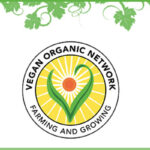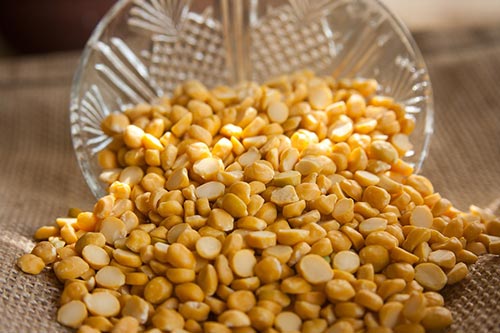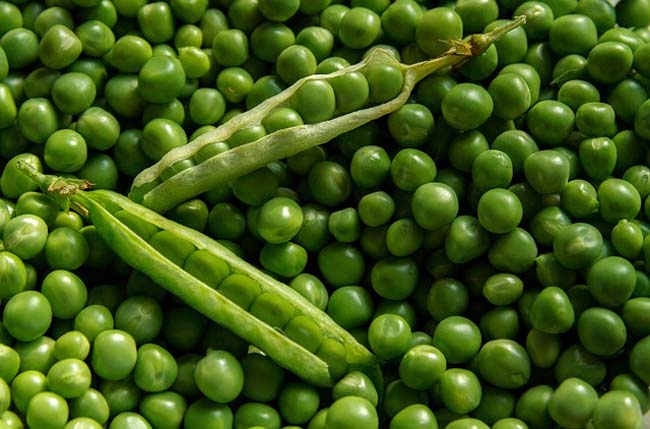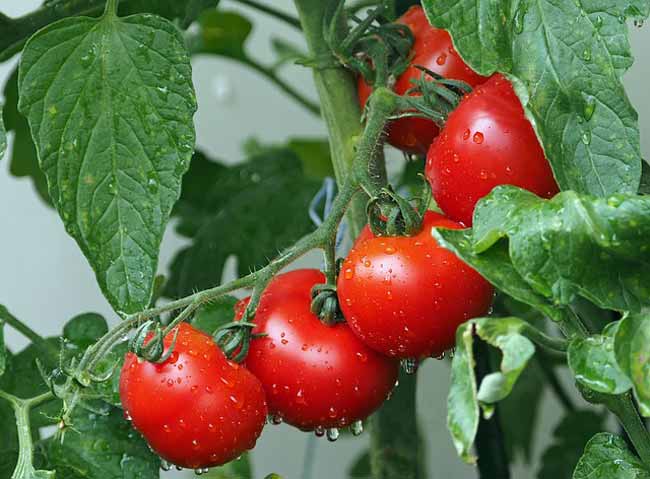Protein is a fundamental macronutrient vital for the growth, repair, and maintenance of cells and tissues in the human body. While commonly associated with animal products, few people understand that all protein is made by plants.
To truly understand protein, it's crucial to delve into its composition, the role of amino acids, and why plants play the primary role in its production.
What is Protein?
Proteins are large molecules made up of smaller units called amino acids. These amino acids are connected in a specific sequence, forming long chains that fold into complex three-dimensional structures. The unique arrangement of amino acids determines the function and characteristics of each protein.

Essential vs. Non-Essential Amino Acids
Amino acids are classified into two categories: essential and non-essential.
Essential amino acids are those that the body cannot produce on its own and must be obtained through dietary sources. These amino acids are crucial for various bodily functions, such as muscle synthesis, hormone production, and immune function.
There are nine essential amino acids:
- Histidine
- Isoleucine
- Leucine
- Lysine
- Methionine
- Phenylalanine
- Threonine
- Tryptophan
- Valine
On the other hand, non-essential amino acids are those that the body can synthesize from other compounds and are not reliant on dietary intake.
While non-essential amino acids can be synthesized internally, their presence in the diet can still contribute to overall protein synthesis and health.
These include:
- Alanine
- Arginine
- Asparagine
- Aspartic acid
- Cysteine
- Glutamic acid
- Glutamine
- Glycine
- Proline
- Serine
- Tyrosine
How Plants Make Protein
Plants are the primary producers of protein in the food chain. Contrary to common belief, plants possess the remarkable ability to synthesize all twenty amino acids required for protein formation. Through photosynthesis, plants harness sunlight energy to convert carbon dioxide and water into glucose—a process that occurs in chloroplasts, specialized organelles within plant cells. Glucose serves as the building blocks for various organic compounds, including amino acids.
Plants utilize nitrogen, absorbed from the soil in the form of nitrates and ammonium ions, to synthesize amino acids. Within plant cells, nitrogen is assimilated into amino acids through a series of enzymatic reactions known as the nitrogen assimilation pathway. This process involves the conversion of inorganic nitrogen into organic forms, ultimately leading to the production of essential and non-essential amino acids.
The synthesis of protein in plants occurs through a complex biochemical process called translation. This process takes place in cellular structures called ribosomes, where messenger RNA (mRNA) serves as a template for protein assembly. Each mRNA molecule contains a specific sequence of nucleotides, which corresponds to the sequence of amino acids in the protein being synthesized.
During translation, transfer RNA (tRNA) molecules transport individual amino acids to the ribosomes, where they are assembled into polypeptide chains according to the mRNA template. As the polypeptide chain grows, it undergoes folding and post-translational modifications to form functional proteins with unique structures and functions.
Meat: A Form of Recycled Protein Sourced from Plants
When considering the source of protein in the human diet, it's essential to recognize that meat, despite being a popular protein source, is essentially recycled protein derived from plants. Animals, whether raised for meat or other animal products, rely on plant-based sources for their own protein needs.
Understanding the journey of protein from plants to animals and eventually to human consumption sheds light on the inefficiencies and environmental impacts associated with meat consumption.
Animal Protein Production
When animals consume plant-based foods, they metabolize the ingested proteins and amino acids to meet their own physiological needs. A portion of the consumed protein is utilized by animals for functions such as muscle development, tissue repair, and hormone synthesis. However, a significant portion of the ingested protein is also converted into energy through metabolic processes.
Livestock, including cattle, pigs, and poultry, are commonly raised for meat production. These animals serve as intermediaries in the protein supply chain, converting plant-based proteins into animal tissues that are rich in protein. Throughout their growth cycle, livestock consume large quantities of plant-based feed, which provides them with the necessary nutrients, including protein, for growth and development.
When animals are slaughtered for meat production, the protein stored in their muscle tissues becomes available for human consumption. In essence, meat can be viewed as a form of recycled protein, as it represents the culmination of the protein journey from plants to animals and finally to humans. However, it's essential to recognize that this process of protein recycling is inherently inefficient and comes with significant environmental costs.
Environmental Implications of Meat Protein
The production of meat requires substantial resources, including land, water, and feed crops. As a result, meat production contributes to deforestation, habitat loss, water pollution, and greenhouse gas emissions. Moreover, the inefficiencies inherent in the conversion of plant-based protein into animal protein mean that a considerable portion of the energy and nutrients contained in the original plant material is lost in the process.
While meat serves as a source of protein in the human diet, it's crucial to acknowledge that its origin lies in plant-based sources. By understanding the concept of recycled protein and the role of livestock in the protein supply chain, we can appreciate the inefficiencies and environmental impacts associated with meat consumption. Emphasizing plant-based protein sources not only promotes environmental sustainability but also supports human health and well-being in the long run.
+ Check out this infographic for more information
Ethical Implications of Meat Protein
In addition to the environmental considerations, it's imperative to address the ethical implications of meat consumption and the factory farming industry. The current methods of mass-producing meat involve practices that raise serious concerns about animal welfare.
Animals in factory farms are often subjected to overcrowded and unsanitary conditions, deprived of their natural behaviors, and subjected to painful procedures such as debeaking, tail docking, and castration without anesthesia. The focus on maximizing profits often results in cruelty and unnecessary suffering for these sentient beings.
Furthermore, the process of slaughtering animals for meat involves taking lives unnecessarily, as plant-based alternatives can fulfill our nutritional needs without the need for animal sacrifice. The inherent cruelty and disregard for animal welfare in the meat industry raise moral questions about the ethics of consuming animal products.
Choosing plant-based protein sources not only mitigates environmental harm but also aligns with principles of compassion and respect for all living beings. By advocating for a shift towards plant-based diets, we can work towards a food system that is both sustainable and ethical.
In Conclusion
Protein is a fundamental component of the human diet, essential for various physiological processes ranging from muscle growth to hormone synthesis. While often associated with animal products, it's vital to recognize that all protein originates from plants. Understanding the composition of protein, the role of amino acids, and the mechanisms by which plants synthesize protein provides valuable insights into the importance of plant-based sources in our diets.
Plants possess the remarkable ability to produce all twenty amino acids required for protein formation through the process of photosynthesis. By harnessing sunlight energy and utilizing nutrients such as nitrogen from the soil, plants synthesize amino acids within their cells, which serve as the building blocks for protein synthesis. This intricate biochemical process underscores the central role of plants as primary producers of protein in the food chain.
Meat, a commonly consumed source of protein, is essentially recycled protein derived from plants. Livestock raised for meat production rely on plant-based feed to meet their protein needs, highlighting the inefficiencies and environmental costs associated with meat consumption. The production of meat contributes to deforestation, habitat loss, water pollution, and greenhouse gas emissions, exacerbating environmental challenges.
Moreover, the ethical implications of meat consumption cannot be overlooked. Factory farming practices often involve cruelty and disregard for animal welfare, raising moral questions about the ethics of consuming animal products. Choosing plant-based protein sources not only promotes environmental sustainability but also aligns with principles of compassion and respect for all living beings.
In light of these considerations, advocating for a shift towards plant-based diets emerges as a sustainable and ethical choice. Emphasizing plant-based protein sources not only supports human health and well-being but also promotes environmental conservation and animal welfare.




Leave a Reply